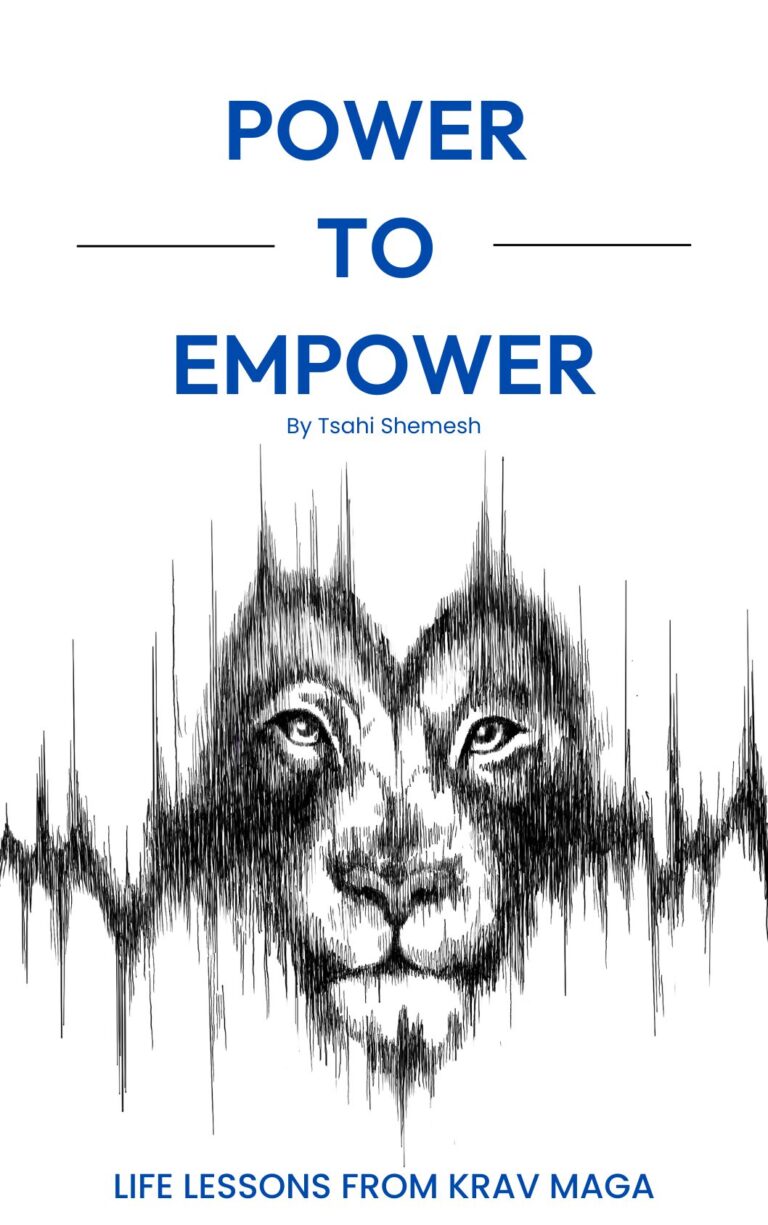The Hidden Cost of Fear: Overcoming What Holds You Back
Do You Know How Much Sleep You Are Losing Over Violence?
Let me start with the punchline: many people are losing sleep because of their concerns about violence. Let me be clear, one doesn’t have to be exposed to violence directly to be affected.
Over the years, I had many conversations with students who noticed improvement in their sleeping habits after training in self-defense. I decided to look into the science of it. In a study published in the Journal of Clinical Sleep Medicine, people managing fear typically lose 1-2 hours of sleep per night compared to the average person.
This isn’t just a minor inconvenience; it’s a widespread issue with serious implications for our daily lives and overall well-being. Let’s dive into how fear of violence is impacting our sleep and the ripple effects it has on our lives.
In another study, published in the Journal of Clinical Sleep Medicine, individuals with trauma exposure, including violence, have significantly higher rates of insomnia and sleep disruptions compared to those without such exposure.
Many studies have shown that the fear of violence and related trauma can significantly affect sleep. Individuals who have experienced or fear violence often report sleep issues, including insomnia, frequent awakenings, and difficulty falling back asleep. This is due to heightened alertness and hyper-arousal, which are part of the body’s trauma response. These sleep disturbances can persist over time and potentially lead to more severe issues like post-traumatic stress disorder (PTSD).
Women experiencing domestic violence, in particular, tend to have an average sleep time significantly lower than the general population. This illustrates the direct link between exposure to violence and reduced sleep. When you’re constantly on edge, fearing for your safety, it’s nearly impossible to relax enough to get the rest you need.
These findings are not limited to those who suffer from PTSD or experience trauma. Other studies address sleep disturbances in people who fear for their safety, even without directly reporting any trauma exposure. One such study is titled “Perceived Neighborhood Safety, Sleep Quality, and Health-Related Quality of Life,” published in Sleep Health. This research found that individuals who perceive their neighborhoods as unsafe are more likely to experience poor sleep quality. The study highlights that the mere fear of personal safety can lead to significant sleep disturbances.
Another interesting study published in the Journal of Urban Health titled “Perceived Neighborhood Safety and Sleep Quality: A Global Perspective” supports these findings by demonstrating that concerns about personal safety and perceived neighborhood violence are associated with increased sleep problems. These studies underline that the fear of violence and safety concerns alone can significantly impact sleep quality, even in the absence of direct trauma.
What happens when we don’t get enough sleep?
Sleep deprivation can significantly increase anxiety. Research has shown that inadequate sleep can exacerbate anxiety symptoms and contribute to the development of anxiety disorders. Here are a few key points that illustrate this relationship:
- Altered Brain Function: Sleep deprivation affects the brain’s ability to regulate emotions and manage stress. The amygdala, the part of the brain responsible for processing emotions, becomes more reactive when a person is sleep-deprived. This heightened reactivity can lead to increased anxiety.
- Increased Stress Hormones: Lack of sleep elevates levels of stress hormones such as cortisol. Chronic elevation of cortisol can lead to a constant state of heightened alertness and anxiety.
- Impaired Coping Mechanisms: When individuals are sleep-deprived, their ability to cope with stressors diminishes. This impaired coping capacity can result in higher levels of anxiety in response to everyday challenges.
- Cycle of Anxiety and Sleep Loss: Anxiety and sleep deprivation can create a vicious cycle. Poor sleep can increase anxiety, and increased anxiety can further disrupt sleep, perpetuating the cycle.
A study published in the journal *Sleep* found that people with insomnia are at a significantly higher risk of developing anxiety disorders compared to those without sleep problems. This study emphasizes the relationship between sleep and anxiety, highlighting the importance of addressing sleep issues to manage anxiety effectively.
Inadequate sleep isn’t just leaving us feeling groggy and irritable; it impacts our mental and physical health in profound ways. Lack of sleep can exacerbate mental health issues such as anxiety and depression, impair cognitive function, and hinder our ability to make sound decisions. Physically, it increases the risks for conditions like obesity, diabetes, and heart disease.
Think about it: how can we make good decisions when we’re running on empty? Sleep deprivation dulls our ability to think clearly, react quickly, and manage our emotions. This can lead to a vicious cycle where our fears and anxieties are heightened, making it even harder to sleep. It’s a catch-22 that many people find themselves trapped in.
So, what can we do about it?
If you’re losing sleep over fears of violence, know it’s a serious issue that deserves attention. The easy path is to self-medicate with drugs, buzz, or whatever your doctor is happy to prescribe. But that is a bandaid because it’s not changing the situation, it’s just masking it for the night. This outcome won’t change unless you take a proactive approach. If you’re unhappy with the amount of sleep you’re missing and the impact it’s having on your quality of life, know that change is possible. To change the quality of life, we need to change our lifestyle. It’s an obtainable goal, and everyone can and should know how to protect themselves.
Addressing the root causes of your fears, comforting it by and learning self-defense and regaining agency over your life will help you reclaim your peace of mind—and your sleep. Krav Maga, for example, isn’t just about physical fitness; it’s about building confidence, understanding your capabilities, and fostering a community that supports you. Knowing how to protect yourself can alleviate some of the fears that keep you up at night.
Fear is like a fog; you can get used to it and live with it, but when it lifts, you can finally see the amazing landscape that was hidden from you before.
Do something amazing,
Tsahi Shemesh
Founder & CEO
Krav Maga Experts
————————————-
References:
- Journal of Clinical Sleep Medicine. “Impact of Trauma on Sleep.”
- Journal of Clinical Sleep Medicine. “Sleep Disruptions in Trauma Exposure.”
- Sleep Health. “Perceived Neighborhood Safety, Sleep Quality, and Health-Related Quality of Life.”
- Journal of Urban Health. “Perceived Neighborhood Safety and Sleep Quality: A Global Perspective.”
- Sleep. “Insomnia and Anxiety Disorders.”


I developed a crippling fear during the Covid season that lasted for awhile until late 2023. I won’t go into the details but after enrolling in kme that fear somewhat was alleviated. Not yet 100 out of it but gradually I’m going to get there one day. It was like all this time I had this heavy wet blanket that was draped all over me and suddenly I can feel the warmth of the sun on my skin again. Thank you for letting the training be my therapy.